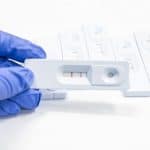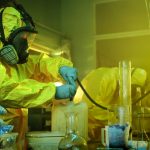- Symptoms Of A Meth Overdose
- Signs Of A Meth Overdose
- Risk Factors For A Meth Overdose
- Treatment For A Meth Overdose
A meth overdose occurs when someone takes too much and then experiences dangerous side effects as the drug makes its way through the body. How much is too much depends on the person. If left untreated, a meth overdose can be fatal.
Symptoms Of A Meth Overdose
Methamphetamine or meth is a powerful stimulant drug that affects the central nervous system. It was originally used for ADHD and narcolepsy but has since been classified as a Schedule II controlled substance.
The short-term euphoric feeling meth provides can be very addictive, lead to abuse, and if taken in high enough quantities, an overdose.
Symptoms of a meth overdose may include:
- high body temperature/hyperthermia
- agitation
- chest pain
- coma
- unresponsiveness
- difficulty breathing
- paranoia
- severe stomach pain
- high blood pressure
- dark urine
- changes in personality
- enlarged pupils.
- rapid, slowed, or irregular heart rate.
- anxiety
- sleep disturbances
- hallucinations
- memory loss
Signs Of A Meth Overdose
A meth overdose can also come with a variety of warning signs. These signs should be your warning that your or a loved one need to seek emergency help. Some of these signs include:
Heart Problems
Heart problems are a major sign of a meth overdose. Issues like chest pains, arrhythmias, hypertension, and a changing heartbeat are all signs of heart problems that can be related to a meth overdose. It’s important to notice these signs and get them treated before they turn deadly.
Trouble Breathing
Slowed or rapid breathing (hyperventilation) can also be a sign of a meth overdose. The respiratory system is also very closely connected to the heart so difficulty breathing can also mean there may be an issue with the heart as well.
Kidney Failure
Those who binge on meth often don’t drink enough water and that can lead to hydration. When you’re dehydrated, your blood pressure can decrease and potentially lead to your kidneys not getting enough blood. This decrease in the blood can lead to kidney failure.
While the kidneys can repair themselves to a certain point, if left untreated, it can lead to permanent damage.
Seizures
Seizures are another common sign of a meth overdose. A high dose of meth can lead to convulsions and motor functions breaking down. Seizures can also lead to heart attack, loss of consciousness, and even a coma.
Psychosis
Paranoia, auditory and visual hallucinations, and restlessness can also be signs of a methamphetamine overdose. Someone who has overdosed may seem very confused or feel like they have bugs crawling across their skin.
Risk Factors For A Meth Overdose
While a meth overdose can happen to anyone who is using the drug, certain risk factors make it more likely to happen. These factors include:
- if someone is mixing meth with other drugs and/or alcohol
- if someone is using larger and larger amounts of the drug
- if the drug is being injected
- if there are pre-existing health conditions like hypertension, history of heart attack, or history of breathing problems
Treatment For A Meth Overdose
If you think you or a loved one are experiencing a meth overdose, it’s important to call 911 immediately. Overdoses can be life-threatening and may require medical treatment as soon as possible.
Once the drug overdose has been treated, substance abuse treatment may be something you want to consider. It can help avoid future overdoses and improve your physical and mental health.
Meth Addiction Treatment
Meth addiction treatment likely begins with a detox program to safely ease you off the drug. From there, treatment can come in the form of inpatient or outpatient care and may include:
- cognitive-behavioral therapy (CBT)
- support groups like Crystal Meth Anonymous
- motivational incentives
- psychoeducation
If you or a loved one are struggling with any form of drug abuse, please call our helpline today.
Sources
Written by
Northeast Addition Editorial Team
©2024 Northeast Addition Center | All Rights Reserved
This page does not provide medical advice.








